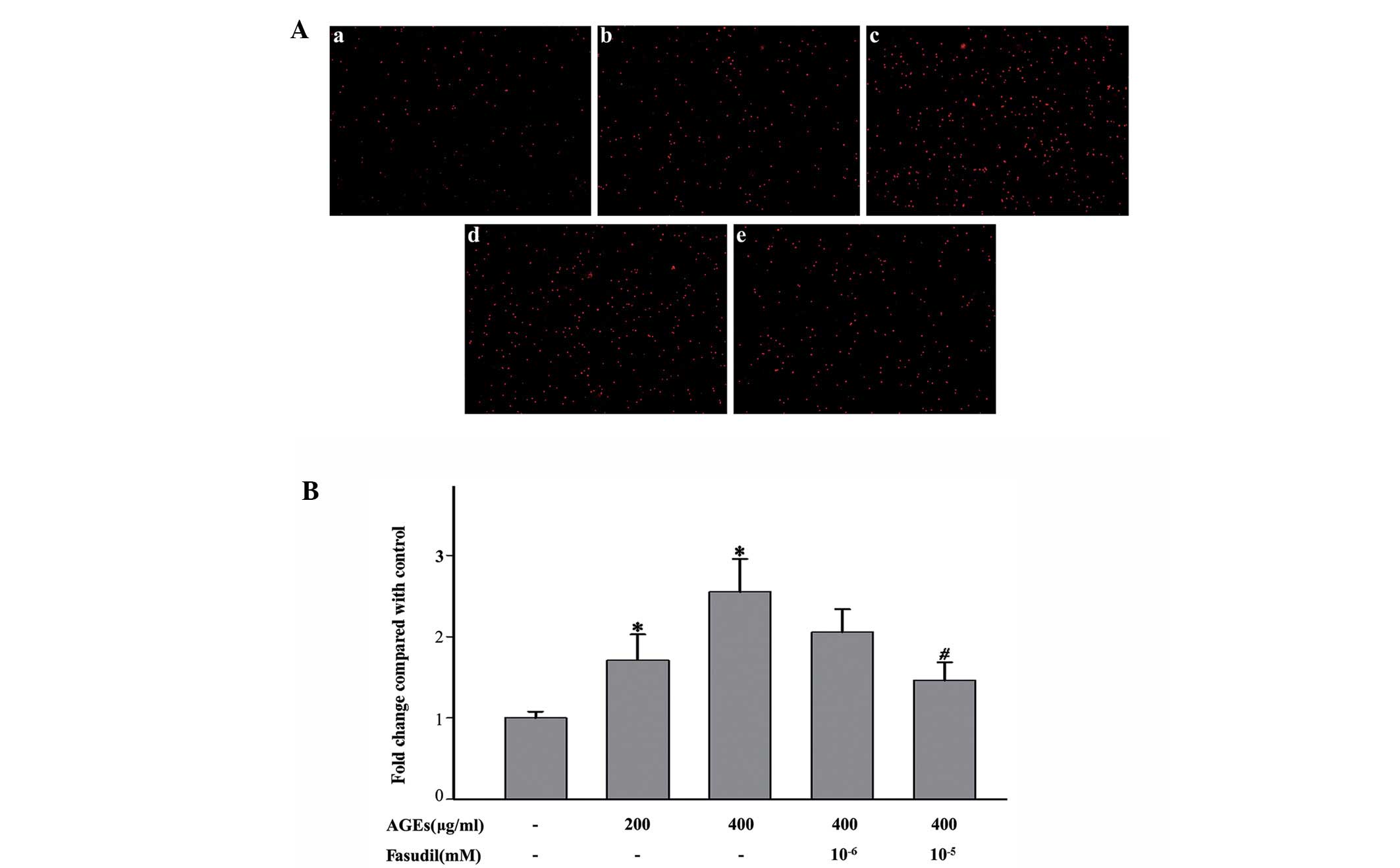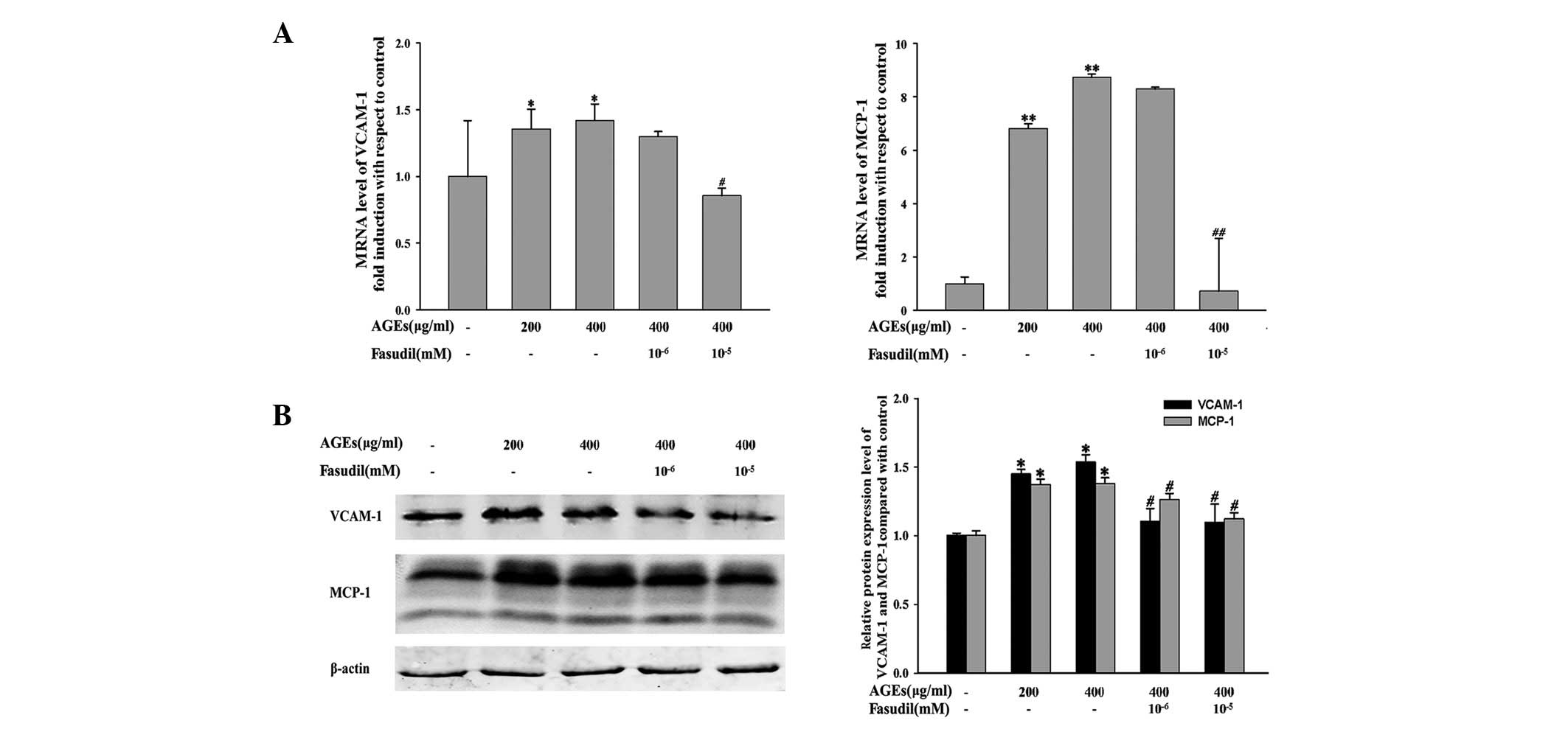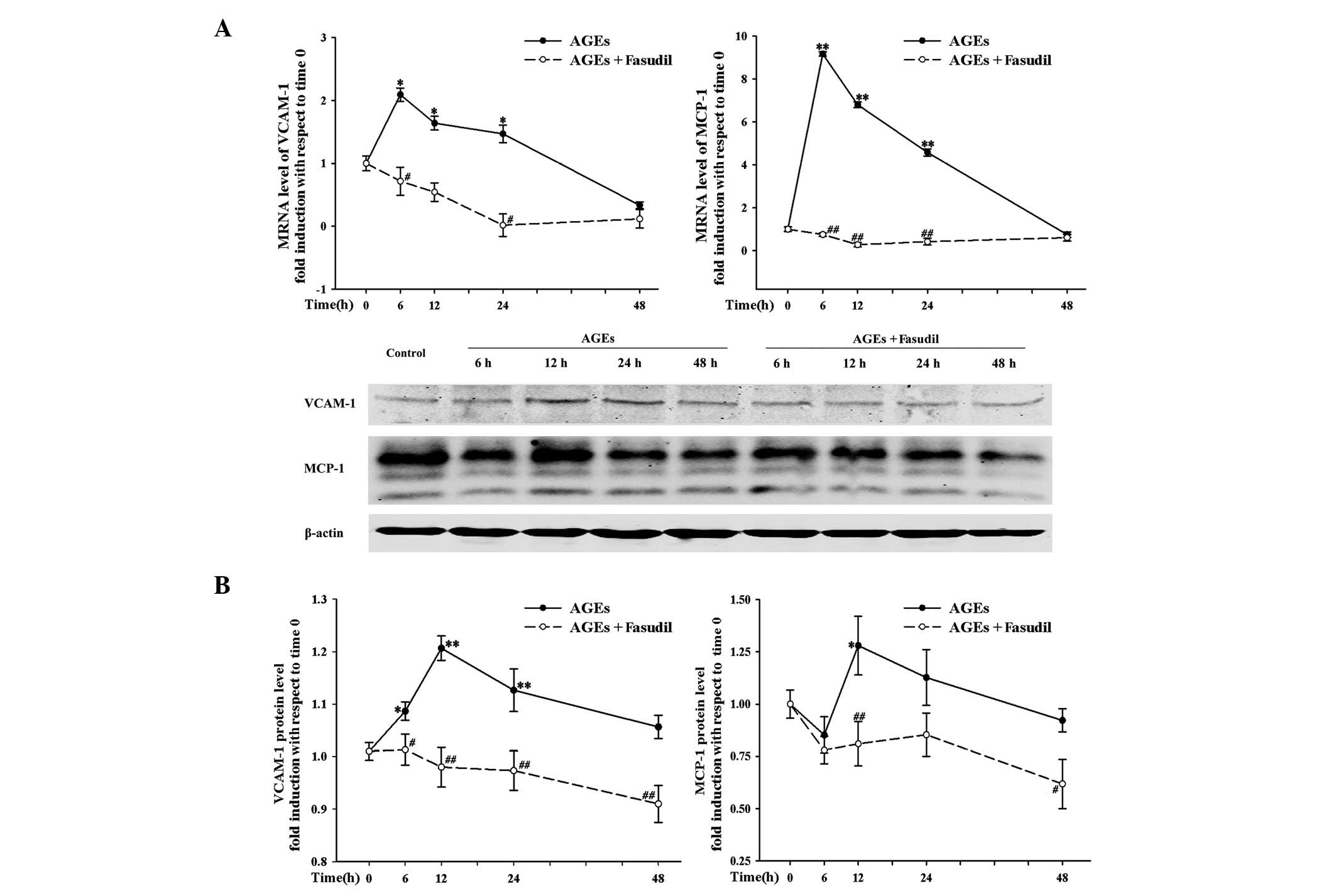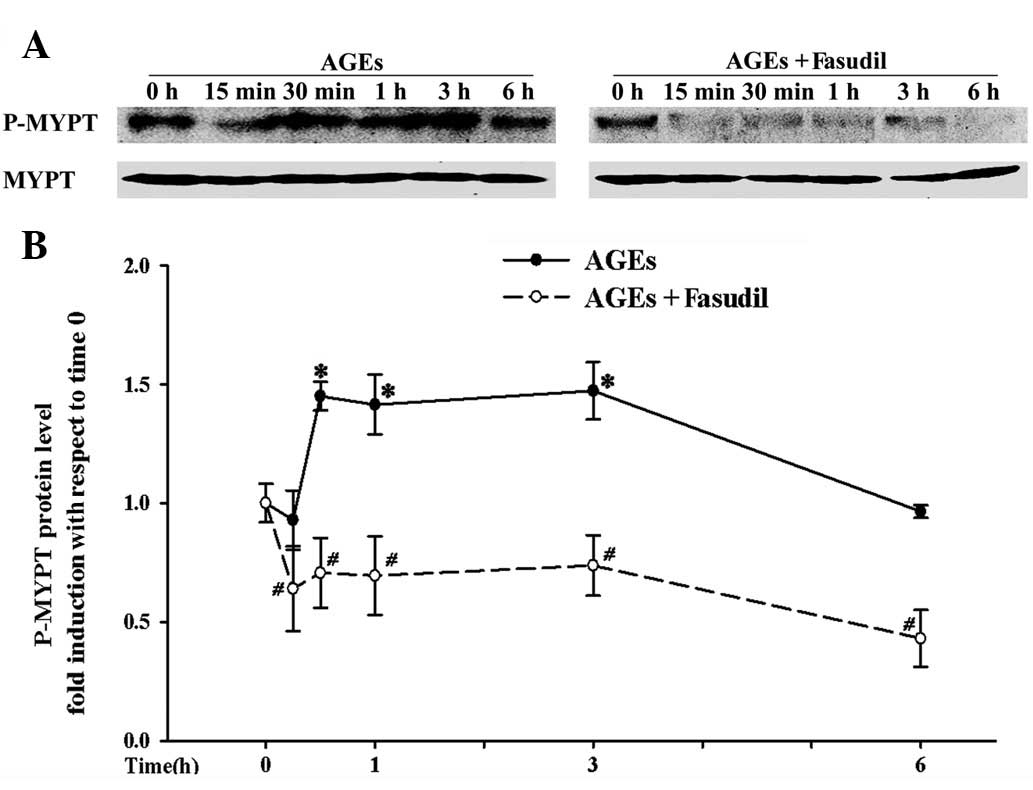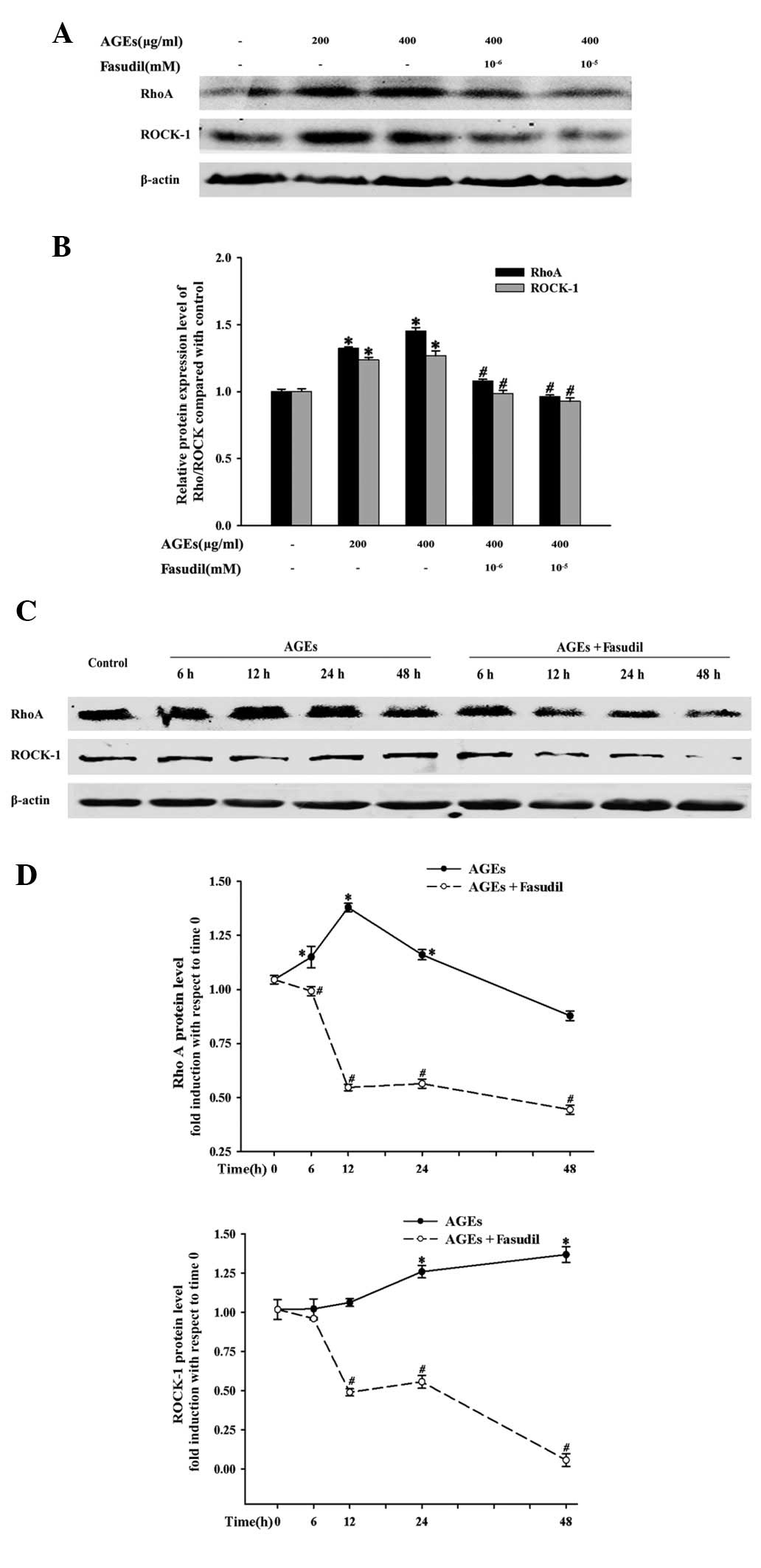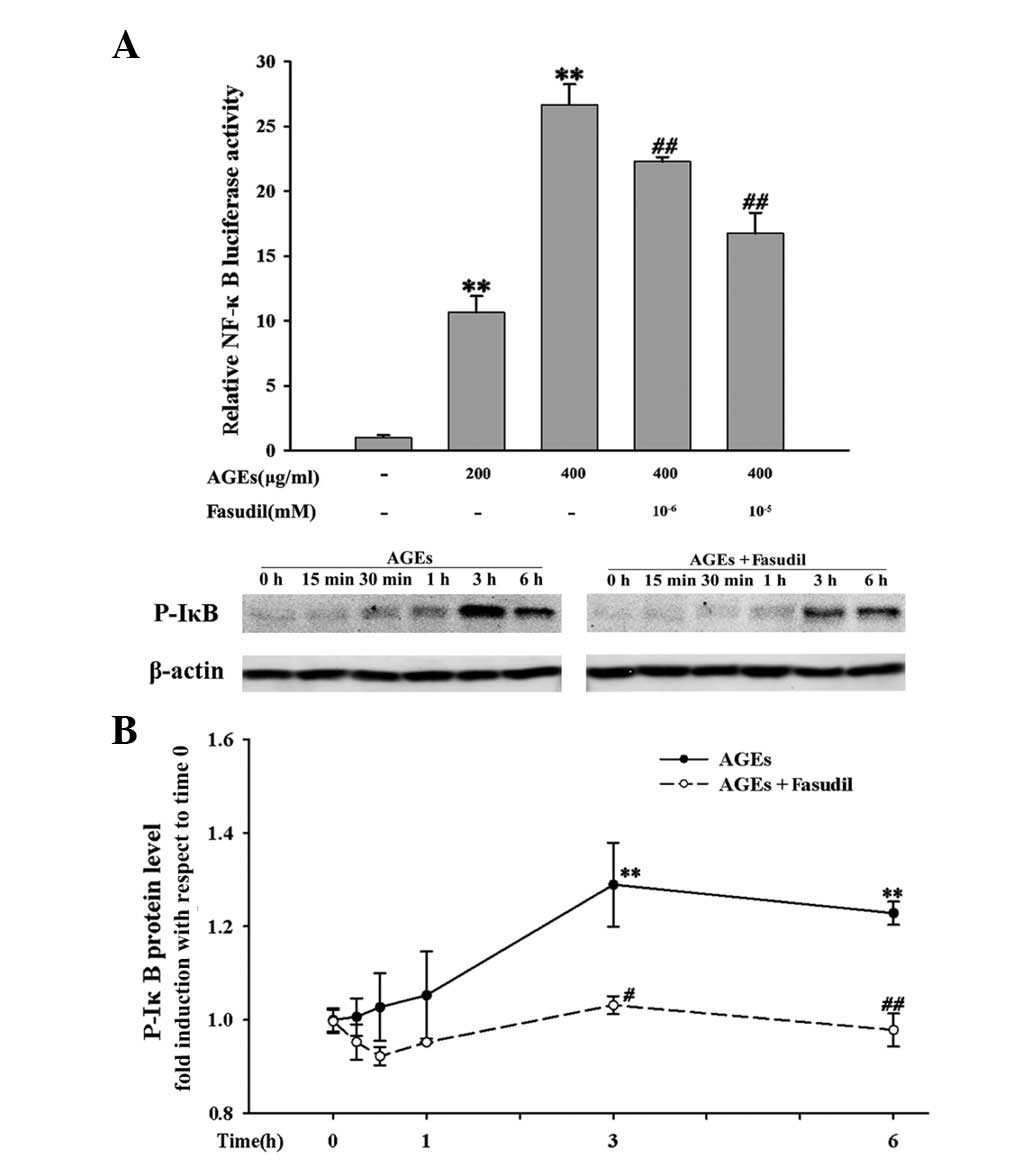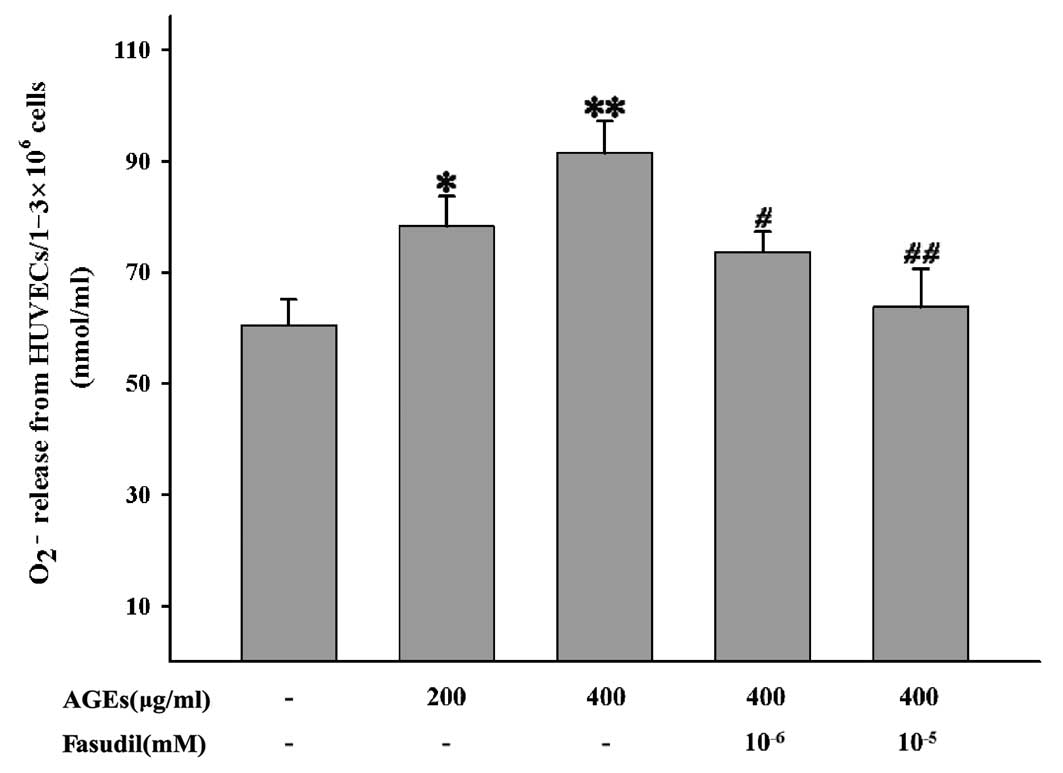|
1.
|
Potenza MA, Gagliardi S, Nacci C, Carratu’
MR and Montagnani M: Endothelial dysfunction in diabetes: from
mechanisms to therapeutic targets. Curr Med Chem. 16:94–112. 2009.
View Article : Google Scholar : PubMed/NCBI
|
|
2.
|
Basta G, Schmidt AM and De Caterina R:
Advanced glycation end products and vascular inflammation:
implications for accelerated atherosclerosis in diabetes.
Cardiovasc Res. 63:582–592. 2004. View Article : Google Scholar : PubMed/NCBI
|
|
3.
|
Garay-Sevilla ME, Regalado JC, Malacara
JM, et al: Advanced glycosylation end products in skin, serum,
saliva and urine and its association with complications of patients
with type 2 diabetes mellitus. J Endocrinol Invest. 28:223–230.
2005. View Article : Google Scholar : PubMed/NCBI
|
|
4.
|
Rojas A and Morales MA: Advanced glycation
and endothelial functions: a link towards vascular complications in
diabetes. Life Sci. 76:715–730. 2004. View Article : Google Scholar : PubMed/NCBI
|
|
5.
|
Goldin A, Beckman JA, Schmidt AM and
Creager MA: Advanced glycation end products: sparking the
development of diabetic vascular injury. Circulation. 114:597–605.
2006. View Article : Google Scholar : PubMed/NCBI
|
|
6.
|
Ross R: Atherosclerosis - an inflammatory
disease. N Engl J Med. 340:115–126. 1999. View Article : Google Scholar
|
|
7.
|
Littlewood TD and Bennett MR: Apoptotic
cell death in atherosclerosis. Curr Opin Lipidol. 14:469–475. 2003.
View Article : Google Scholar : PubMed/NCBI
|
|
8.
|
Piconi L, Quagliaro L, Da Ros R, et al:
Intermittent high glucose enhances ICAM-1, VCAM-1, E-selectin and
interleukin-6 expression in human umbilical endothelial cells in
culture: the role of poly(ADP-ribose) polymerase. J Thromb Haemost.
2:1453–1459. 2004. View Article : Google Scholar : PubMed/NCBI
|
|
9.
|
Albelda SM, Smith CW and Ward PA: Adhesion
molecules and inflammatory injury. FASEB J. 8:504–512.
1994.PubMed/NCBI
|
|
10.
|
Gerszten RE, Garcia-Zepeda EA, Lim YC, et
al: MCP-1 and IL-8 trigger firm adhesion of monocytes to vascular
endothelium under flow conditions. Nature. 398:718–723. 1999.
View Article : Google Scholar : PubMed/NCBI
|
|
11.
|
Lu Y, Zhu X, Liang GX, et al: Apelin-APJ
induces ICAM-1, VCAM-1 and MCP-1 expression via NF-kappaB/JNK
signal pathway in human umbilical vein endothelial cells. Amino
Acids. 43:2125–2136. 2012. View Article : Google Scholar : PubMed/NCBI
|
|
12.
|
Zhang FL, Gao HQ, Wu JM, et al: Selective
inhibition by grape seed proanthocyanidin extracts of cell adhesion
molecule expression induced by advanced glycation end products in
endothelial cells. J Cardiovasc Pharmacol. 48:47–53. 2006.
View Article : Google Scholar
|
|
13.
|
Li H, Peng W, Jian W, et al: ROCK
inhibitor fasudil attenuated high glucose-induced MCP-1 and VCAM-1
expression and monocyte-endothelial cell adhesion. Cardiovasc
Diabetol. 11:652012. View Article : Google Scholar : PubMed/NCBI
|
|
14.
|
Noma K, Kihara Y and Higashi Y: Striking
crosstalk of ROCK signaling with endothelial function. J Cardiol.
60:1–6. 2012. View Article : Google Scholar : PubMed/NCBI
|
|
15.
|
Arita R, Hata Y, Nakao S, et al: Rho
kinase inhibition by fasudil ameliorates diabetes-induced
microvascular damage. Diabetes. 58:215–226. 2009. View Article : Google Scholar : PubMed/NCBI
|
|
16.
|
Ocaranza MP, Rivera P, Novoa U, et al: Rho
kinase inhibition activates the homologous angiotensin-converting
enzyme-angiotensin-(1–9) axis in experimental hypertension. J
Hypertens. 29:706–715. 2011.PubMed/NCBI
|
|
17.
|
Shimokawa H and Rashid M: Devlopment of
Rhokinase inhibitors for cardiovascular medicine. Trends Pharmacol
Sci. 28:296–302. 2007. View Article : Google Scholar : PubMed/NCBI
|
|
18.
|
Suzuki Y, Shibuya M, Satoh S, Sugimoto Y
and Takakura K: A postmarketing surveillance study of fasudil
treatment after aneurysmal subarachnoid hemorrhage. Surg Neurol.
68:126–131. 2007. View Article : Google Scholar : PubMed/NCBI
|
|
19.
|
Lee YJ, Kang DG, Kim JS and Lee HS: Effect
of Buddleja officinalis on high-glucose-induced vascular
inflammation in human umbilical vein endothelial cells. Exp Biol
Med (Maywood). 233:694–700. 2008.
|
|
20.
|
Okamoto H, Yoshio T, Kaneko H and Yamanaka
H: Inhibition of NF-kappaB signaling by fasudil as a potential
therapeutic strategy for rheumatoid arthritis. Arthritis Rheum.
62:82–92. 2010. View Article : Google Scholar : PubMed/NCBI
|
|
21.
|
Segain JP, Raingeard de la Blétière D,
Sauzeau V, et al: Rho kinase blockade prevents inflammation via
nuclear factor kappa B inhibition: evidence in Crohn’s disease and
experimental colitis. Gastroenterology. 124:1180–1187.
2003.PubMed/NCBI
|
|
22.
|
Wang Y, Beck W, Deppisch R, Marshall SM,
Hoenich NA and Thompson MG: Advanced glycation end products elicit
externalization of phosphatidylserine in a subpopulation of
platelets via 5-HT2A/2C receptors. Am J Physiol Cell Physiol.
293:C328–C336. 2007. View Article : Google Scholar : PubMed/NCBI
|
|
23.
|
Wang SH, Guo YJ, Yuan Y, et al:
PPARgamma-mediated advanced glycation end products regulate neural
stem cell proliferation but not neural differentiation through the
BDNF-CREB pathway. Toxicol Lett. 206:339–346. 2011.PubMed/NCBI
|
|
24.
|
Libby P: Inflammation in atherosclerosis.
Nature. 420:868–874. 2002. View Article : Google Scholar : PubMed/NCBI
|
|
25.
|
Jeon KI, Xu X, Aizawa T, et al:
Vinpocetine inhibits NF-kappaB-dependent inflammation via an
IKK-dependent but PDE-independent mechanism. Proc Natl Acad Sci
USA. 107:9795–9800. 2010. View Article : Google Scholar : PubMed/NCBI
|
|
26.
|
Arai M, Sasaki Y and Nozawa R: Inhibition
by the protein kinase inhibitor HA1077 of the activation of NADPH
oxidase in human neutrophils. Biochem Pharmacol. 46:1487–1490.
1993. View Article : Google Scholar : PubMed/NCBI
|
|
27.
|
Song J, Kost CK Jr and Martin DS:
Androgens potentiate renal vascular responses to angiotensin II via
amplification of the Rho kinase signaling pathway. Cardiovasc Res.
72:456–463. 2006. View Article : Google Scholar : PubMed/NCBI
|
|
28.
|
Bolick DT, Orr AW, Whetzel A, et al:
12/15-Lipoxygenase regulates intercellular adhesion molecule-1
expression and monocyte adhesion to endothelium through activation
of RhoA and nuclear factor-kappaB. Arterioscler Thromb Vasc Biol.
25:2301–2307. 2005. View Article : Google Scholar : PubMed/NCBI
|
|
29.
|
Anwar KN, Fazal F, Malik AB and Rahman A:
RhoA/Rho-associated kinase pathway selectively regulates
thrombin-induced intercellular adhesion molecule-1 expression in
endothelial cells via activation of I kappa B kinase beta and
phosphorylation of RelA/p65. J Immunol. 173:6965–6972. 2004.
View Article : Google Scholar
|
|
30.
|
Wei CY, Huang KC, Chou YH, Hsieh PF, Lin
KH and Lin WW: The role of Rho-associated kinase in differential
regulation by statins of interleukin-1beta- and
lipopolysaccharide-mediated nuclear factor kappaB activation and
inducible nitric oxide synthase gene expression in vascular smooth
muscle cells. Mol Pharmacol. 69:960–967. 2006.
|
|
31.
|
Morita M, Yano S, Yamaguchi T and Sugimoto
T: Advanced glycation end products-induced reactive oxygen species
generation is partly through NF-kappa B activation in human aortic
endothelial cells. J Diabetes Complications. 27:11–15. 2013.
View Article : Google Scholar
|
|
32.
|
Montezano AC, Callera GE, Yogi A, et al:
Aldosterone and angiotensin II synergistically stimulate migration
in vascular smooth muscle cells through c-Src-regulated
redox-sensitive RhoA pathways. Arterioscler Thromb Vasc Biol.
28:1511–1518. 2008. View Article : Google Scholar : PubMed/NCBI
|
|
33.
|
Jin L, Ying Z and Webb RC: Activation of
Rho/Rho kinase signaling pathway by reactive oxygen species in rat
aorta. Am J Physiol Heart Circ Physiol. 287:H1495–H1500. 2004.
View Article : Google Scholar : PubMed/NCBI
|















